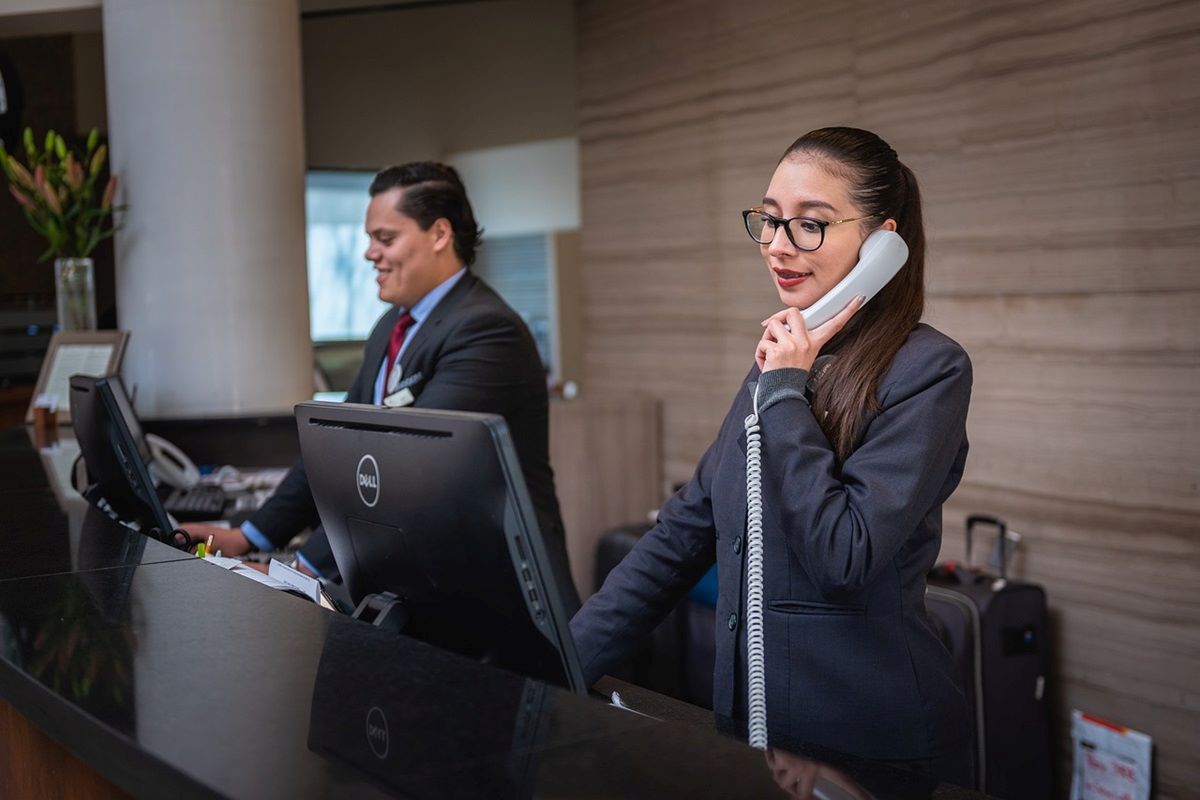
The hospitality industry combines four sectors – lodging, food and beverage, recreation and travel – which are generating more than 10% of global GDP. From hotels and resorts to restaurants, bars and tourism services, the hospitality industry plays a crucial role in facilitating leisure, business travel and tourism experiences worldwide.
One of the defining features of the industry is its focus on customer service, and by adopting stronger security measures, this sector can offer even better guest experiences. While cyberattacks are happening across different industries, hospitality is among the top three targets globally. In 2020 alone, about 5.2 million guest records were compromised in one hotel chain breach only, while 423 million U.S. travellers have been victims of a cyberattack through their business with hotels.
Considering this, let us talk about new security trends the industry can adopt to increase security and protect their customers from possible cybersecurity vulnerabilities.
Hospitality market overview
Travel & Hospitality Trends Report made by Adobe in 2021, found that 82% of businesses accelerated their digital transformation influenced by the pandemic period. This shift was driven by the need of the hospitality industry to get closer to their guests. These innovations focused on digitisation including better security.
When it comes to cybersecurity breaches, the hotels are targeted the most because of the high volume of financial transactions they carry out including the personal data collected. This can have a huge impact on both customer trust and industry revenue. In 2023 the average cost of a data breach in the U.S. was estimated to be $9.45m, but this value can fluctuate depending on the industry.
One of the most common attacks in hotels is through the Wi-Fi networks which are infected with malware. As a solution to combat this, hotel servers can protect themselves and their customers by installing high-quality internet security software including proactive defence against new threats.
-
Biometric authentication
With the use of biometric authentication, hospitality groups can quickly improve their security measures and prevent cyberattacks. Instead of using traditional methods like keys, biometric authentication offers a unique password based on the biological traits of customers like fingerprints, facial recognition, or even voice to verify a person’s identity.
Another advantage of using biometric authentication in hospitality is payment authorization as guests can accept payments using their fingerprints lowering the risk of credit card fraud or identity theft.

Image by Rodrigo Salomón Cañas from Pixabay
-
Surveillance cameras
Surveillance cameras play an important role in strengthening security within hospitality groups by providing continuous monitoring. One way business video surveillance enhances security is by monitoring public areas such as lobbies, corridors, parking lots and entrances or exits.
These cameras serve as a solution to identify potential intruders and quickly respond to security incidents. By installing surveillance cameras hospitality groups can create a safe environment both for guests and their employees.
-
Robots
Robots are another security trend adopted in hospitality groups that can overall increase security measures by offering a solution to potential vulnerabilities. Robots are equipped with cameras and sensors and can patrol 24/7 designated areas and detect suspicious activity. Using robots in hotels or even restaurants can offer an additional layer of security and alert personnel in real time to take action.
-
RFID
Implementing RFID-enabled key cards in hotels is a convenient security solution that removes the need to use traditional keys. It can give access only to guests and staff while tracking and managing inventory and preventing theft throughout the hotel, restaurant and housekeeping. The RFID key cards cannot be copied, so overall it reduces the risk of unauthorised access.
-
Mobile self-service
Mobile self-check-in brings numerous benefits to improve the guest experience and remove the risk of security threats. Firstly, it removed the need to wait in line at the reception for check-in. Additionally, this removed the need for guests to share personal information at the reception.
Plus, mobile self-check-in allows guests to use their smartphones as mobile keys, accessing their room without the need to have a physical key. This not only reduces the risk of lost or copied keys but also provides an additional layer of security against theft.
Conclusion
These new security trends we have highlighted offer hospitality groups tools they can use to keep their guests, employees and properties safe. By using technologies like biometric authentication, surveillance cameras and robots, implementing RFID, or using smartphones for check-in, hospitality groups can better protect against theft, unauthorised access, and other security threats.
With improved security measures in place, guests can feel more confident and comfortable during their stay, leading to better experiences and happier customers.
Top image by Olya Adamovich from Pixabay


Be the first to comment